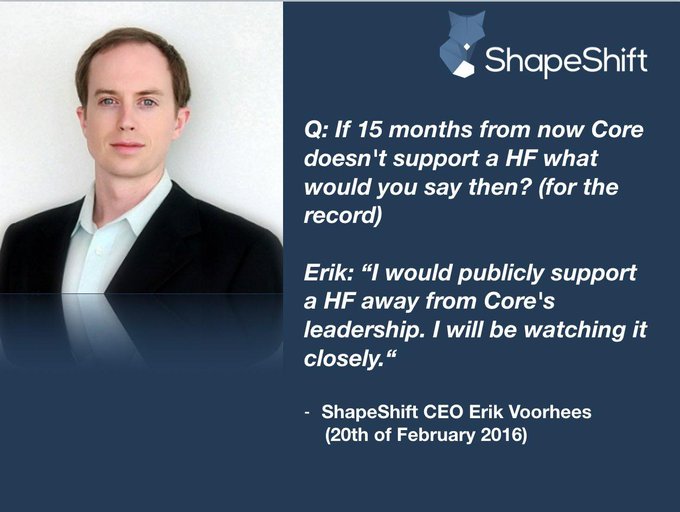Elad Gil is running around the Color Genomics office when I come to meet him for a little sit-down. The place is full for a Friday afternoon. There’s a worker taking calls on the couch in the front and plenty of others pacing about in the background.
The office is tucked away in an unassuming industrial area of Burlingame, California, in a building that reminds me of some 60’s-style government structure. Color is easy to spot. First suite on the first floor and the only one with, well, bright color.
Gil offers me a water and we sit down in a little conference room. Jokingly, he says maybe he can do something funny for the featured image for my article like pretend to hold up the color wheel logo. “Katie would never let me do that,” he says, referring to his chief marketing officer and ex-Twitter employee Katie Jacobs Stanton. He’s nerdy funny. I like that.
Gil came to Silicon Valley with impressive academic credentials, including a degree in mathematics, another in molecular biology and a PhD in biology from MIT. It was 2001, and he had hoped to make a dent in the universe. But the timing was off. The country was already headed toward an economic downturn, then 9-11 happened.
He was at a telecom company that quickly grew to 150 people and shortly after shrank to a tenth of the size in five rounds of layoffs. Gil was cut in the third round.
That was a turning point for him.
“All these people helped,” he said. “Like big brand-name VC’s were referring me to companies just to help. They were like, ‘Everything’s collapsing. You’re some random person who showed up with a PhD in biology. You have no job prospects’.”
He went on to hold prominent positions at Google and Twitter and now as a co-founder in Color Genomics. He’s also an investor in several well-known startups including Airbnb, Square, Stripe and Pinterest and is in a position, which he’s known to readily use, to give back to Silicon Valley in much the same way.
But, a dark cloud has been hanging over the Valley lately. News of several incidents of sexual harassment and sex discrimination of female founders have toppled VC’s once seen as demigods and caused some to lose hope in the dream.
SB: I’ve heard people say Silicon Valley is over. They’ve kind of almost lost faith in their heroes, and then there’s all these other little pop-up satellite Silicon Valley-esque cities starting to come up. Do you think Silicon Valley is over?
EG: Oh God, no. I think its best days are ahead of it…Do you know the last time they said that Silicon Valley was over?
SB: When?
EG: There’s two times. One was in the early 90’s where they were like ‘It’s over. There’s nothing left to be done.’
SB: At the height of the semiconductors.
EG: Yeah, because all the semiconductor stuff was really sort of like 70’s and 80’s. And then in early 90’s – ’91, ’92, ’93 – there’s the internet. And I was talking to somebody who was really prominent in the internet wave, and he was like ‘I moved out here in like ’93 and everybody thought it was over.’
Literally, that was the thing. They were like ‘The best times are behind us. All the stuff that could be done has been done. It’s over.’ And then a small group of people were like ‘Let’s do stuff on the internet.’ Others were like ‘That’s insanity.’ Like the internet’s a stupid toy thing that connects five universities. Who cares? Then of course, Netscape happened, and then there’s a wave of innovations, and then in the bubble that I moved into with my perfect bad timing, the collapse I moved into. In that period, everybody’s like ‘Oh, there’s nothing interesting on the internet, and we have to go back to hard tech.’ And Kleiner Perkins got into clean tech, and all these people were talking about nano tech, and it was like Silicon Valley is over, and there’s nothing to do. We need to find new industries. That’s literally what happened.
Then all the social waves happened, and the mobile waves happened… Just like there’s a business cycle, there’s a venture cycle, and innovation cycle. You end up with these gaps, and I think we’re just going through a period where there’s less obvious things.
Interjection: We started talking about cryptocurrencies, ice cream, health tech and what’s next in Silicon Valley. I’ve cut a bunch of this short for brevity.
EG: I basically think the last six months have been cryptocurrency’s Netscape moment, and I think we’re still trying to figure out what’s Google, and what’s PayPal, and Yahoo, and what to keep in with this first wave.
SB: [Cryptocurrency] scares people, especially when it’s very new.
EG: Totally. You remember the first internet. People were like ‘Oh, nobody’s going to buy anything on that. They’re not going to put a credit into a website. That’s madness.’ Now we’ve got Instacart, Amazon..
Can I say something, and then argue that I never said it when you have a tape? Can I do that purposefully?
SB: Okay. What do you want to argue?
EG: I never said I like chocolate ice cream. I like chocolate chip, or something like that.
SB: And I’ll be like ‘No, on the record. This is where he said it.’ …
Okay, so kind of wrapping this up. Where do you see Color fitting in in all of this?
EG: Yeah. I think Color was sort of part of a very early first wave of the visual data area…So really our focus is on how do you unlock information that’s sort of locked up for people, make it something they can actually use to help manage their own health.
SB: People might say it makes it a lot harder if you have to go through your physician first to get this information. I think that’s kind of the allure of these at-home health tests a lot of the time.
EG: I think it depends on how much friction you can take out of the physician process, but also the flip of it is, if physicians are telling people that they should consider it, that’s actually a really powerful way, as well, for people to participate. So I think there are sort of two sides of the same coin.
As an Ashkanazi Jew, I remember going to my doctor and like ‘Hey, should I be taking these genetic tests for cystic fibrosis and Tay-sachs and all this other stuff as a carrier?’ And he was like, ‘Oh yeah. You’re Jewish. Sure. You should do it.’
SB: Sure. Gotta be proactive.
EG: But I had to bring it up, right? It’s something that’s often recommended for Ashkenazi Jews to do. So, we’re basically trying to create an online version of that, where you’re still working with the physician but there’s different ways for you to work with him.
SB: Where do you think people can innovate further in the health tech space right now? What would you like to see?
EG: Yeah. Um, that’s a great question. I think ultimately, there’s so much data available ambiently through peoples’ bodies…This company Cardiogram that I mentioned. I’m a small investor there, from a disclosure perspective. That’s a good example of where you’re just ambiently recording and then telling people that they may have had a heart attack. I think that those are some themes that are really intriguing.
I think the top part in health care is that the people who are often benefiting the most from things, aren’t necessarily the people making the buying decisions. There are some things at a low enough price-point, so that really changes the adoption rates of different tested products. That’s one obstacle, in terms of larger scale adoptions.
SB: Okay. I think we’ll end it on that.










